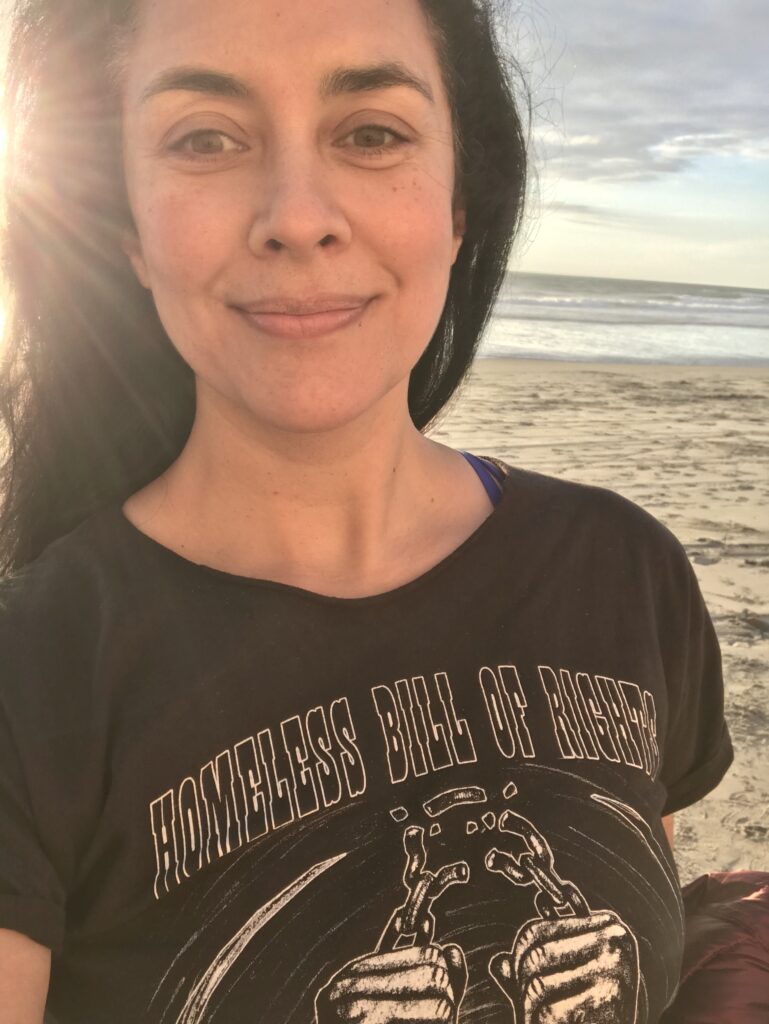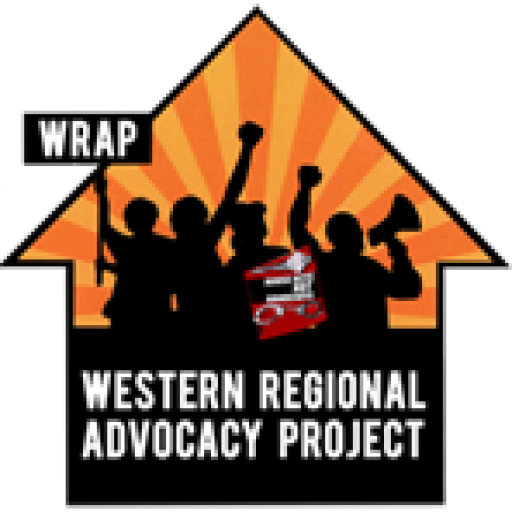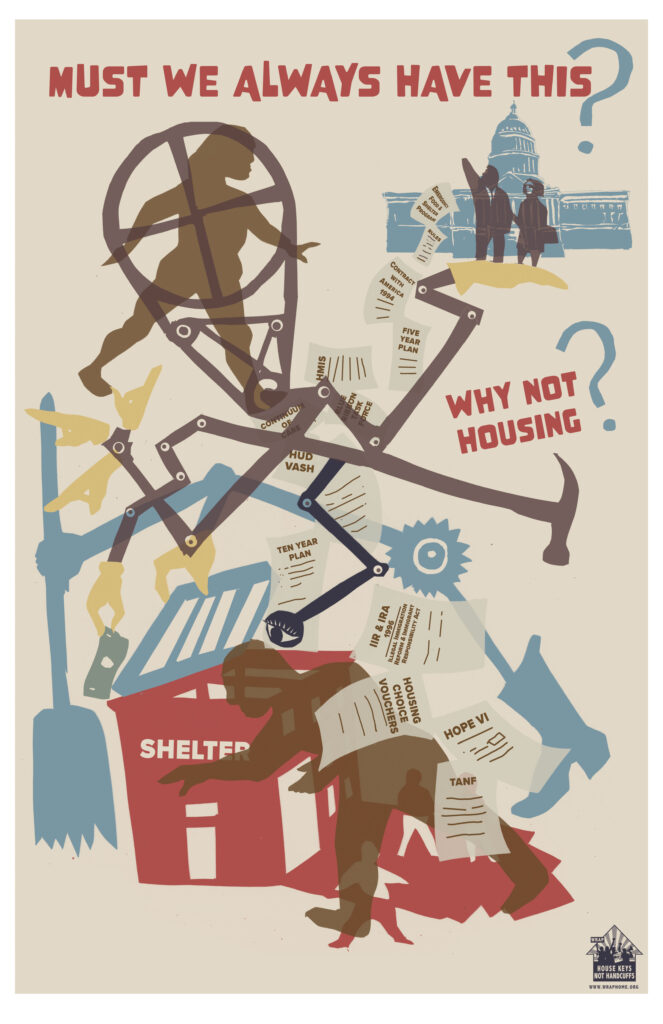Forty years ago, the federal government slashed HUD’s & USDA’s affordable housing budgets, marking the beginning of the contemporary crisis in homelessness. I have committed the last four decades of my own life to building power in our communities and fighting for the human right to housing. From my days on the streets of San Francisco’s Tenderloin neighborhood in the early 1980s right up until today, so many of us have banded together to strategize, connect, build, and struggle for a more humane world that honors basic human needs, including housing.
The Western Regional Advocacy Project (WRAP) and our members have played an integral role in this struggle, first documenting and exposing the massive cuts to affordable housing and then documenting and resisting the horrendous criminalization that has become the main response to mass homelessness. I can’t imagine a better group of people with whom to be fighting this good fight, this moral fight. We, and I, will continue organizing until we see each person’s basic needs met.
To understand why national rates of homelessness skyrocketed in the 1980s, we must ask, what systemic factors changed in the late 1970s and early 1980s to allow so many people to fall through the social safety net and end up living and dying on our streets? What has been happening over the last 500 years to result in Black and Indigenous people being disproportionately represented in the houseless population, and hit hardest by criminalization? Homelessness is a direct result of the decisions and funding priorities of the federal government, in a larger context of white supremacy and settler colonialism. If the federal government had chosen to support affordable housing, health care, anti-poverty programs, worker’s protections, and quality education—rather than war, tax breaks for the wealthy, and corporate welfare—mass homelessness would not exist in our nation The first thing the federal government did in response to rising numbers of people living on the streets in the early 1980s following the massive HUD cuts was to fund shelters. At first, shelters were conceived of as short-term, temporary, emergency facilities. Given the economic downturn of the early 1980s, popular sentiment was that the crisis would self-correct in time. But by 1987, the passage of the McKinney-Vento Homeless Assistance Act marked the first major federal legislation devoted solely to ‘managing’ the epidemic of homelessness that was growing across the nation. At the same time, as real affordable housing programs were being defunded by the federal government, funding for shelter programs grew exponentially. Now, for four decades, homeless shelters that were meant to be a temporary solution to a temporary problem remain the primary response, along with criminalization, to people sleeping in masse in the streets. This ain’t no temporary problem and they never thought it would be.
Historical context is critical to understanding who is hardest hit by forty years and counting of disinvestment. Ongoing systems of white supremacy and settler colonialism that affect everything from housing to healthcare, education to transportation, and especially the criminal (in)justice system mean that homelessness and its myriad related traumas disproportionately impact people along intersectional lines of race, gender, sexuality, disability, immigration, and so on.
This, too, is no accident. It is exactly across these intersectional lines of difference that so many of us have joined forces in working for meaningful and deep change, building on ongoing fights for prison abolition, racial justice, disability justice, and countless other struggles. In 2005, several of us organizing in the western US came together to create WRAP, to give life to the voices of people with firsthand experience
of these oppressive systems and to push for dignified solutions. We are continuing the fight to combat inhumane shelters, end the criminalization of racialized poverty, stop the sweeps, and fight for actual housing that all human beings deserve. WRAP brings allied local groups together to find common threads and strategize paths forward, mobilizes legal resources for our members, creates artwork and shared messaging, supports coordinated direct actions, and so much more. In 2023, we will continue to expand the number of groups working together for House Keys Not Sweeps. We will also continue to build out the Legal Defense Clinic Project. This multi-pronged approach will be critical to bringing an end to homelessness and criminalization and building a more just future.
After 40 years, the system is still doing exactly what it was designed to do: manage and minimize the presence of homeless people. It was NEVER intended to address homelessness in any real way. I was there 40 years ago, and I’m still here today. WRAP and our members and allies are truly in this to work ourselves out of a job. And we are not willing to say it’s a victory until the human right to housing for all people is realized. This is no 40th anniversary party, but nor is it a memorial. WRAP and our members and supporters continue the fight for an END to criminalization and for the right for housing for all – and we could not do this work without the support of all of you. Please help us reach our goal of raising $40,000 by the end of 2022 to continue the fight for systemic change! Thank you for your support!
In true solidarity,
Paul Boden

WRAP Executive Director
Read 40 Year interviews with WRAP Allies below
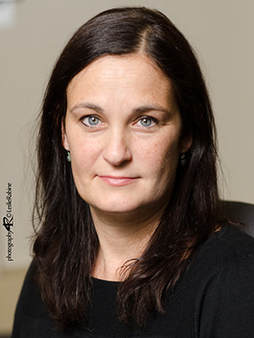
Jackie Jenks I met Paul during his days at the Coalition on Homelessness, when I was a young and impressionable newbie at Hospitality House. Paul’s journey had started at Hospitality House, first as a shelter resident and then as a shelter worker back when modern-day homelessness as we know it was just beginning.
READ MORE HERE…
Terese Howard helped form both Denver Homeless Out loud (DHOL) and Housekeys Action Network Denver (HAND) and lives in Denver with her family and community of powerful organizers.
READ MORE HERE…
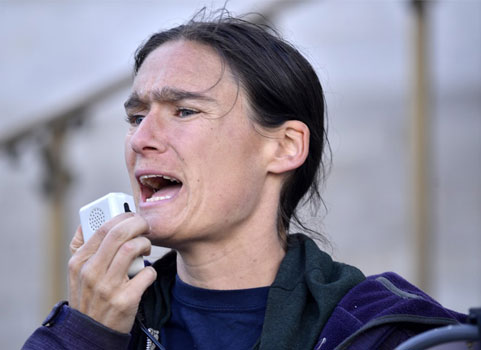
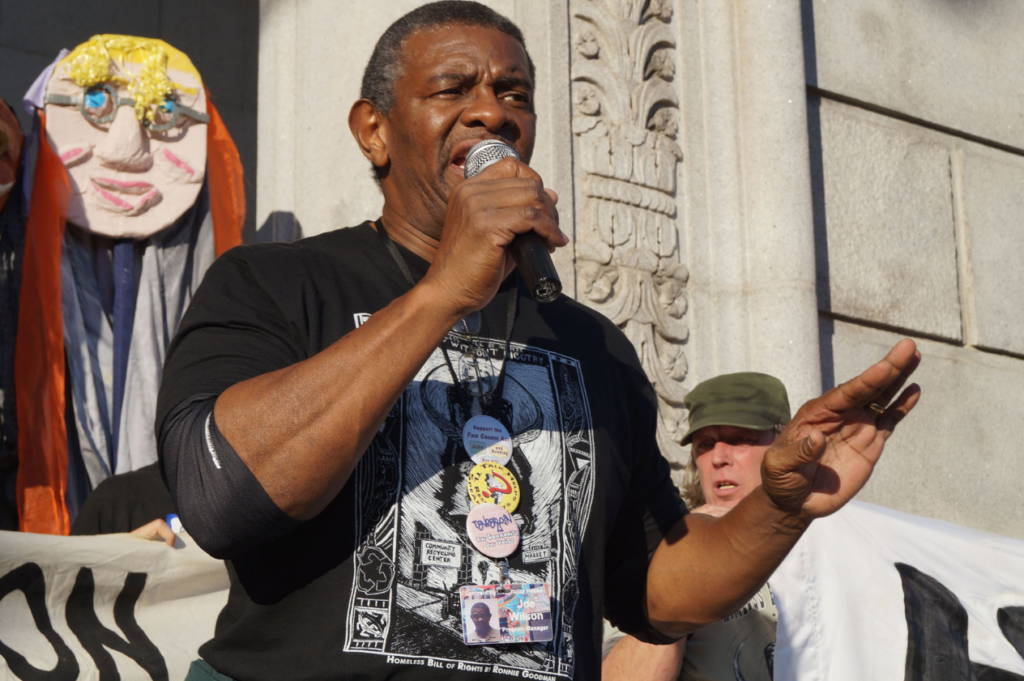
Joe Wilson is the Executive Director of Hospitality House in San Francisco. He has worked with and for the community there since 1983. I’m proud to be part of recognizing Paul’s longevity and accomplishments –
READ MORE HERE…
Becky Dennison. I met Paul at a conference in Ventura. I can’t remember the conference, but I remember we were sitting on our patio at the hotel, and he was downloading his full vision for WRAP. Pitching LA CAN as a founding member. It was a no brainer for us. READ MORE…

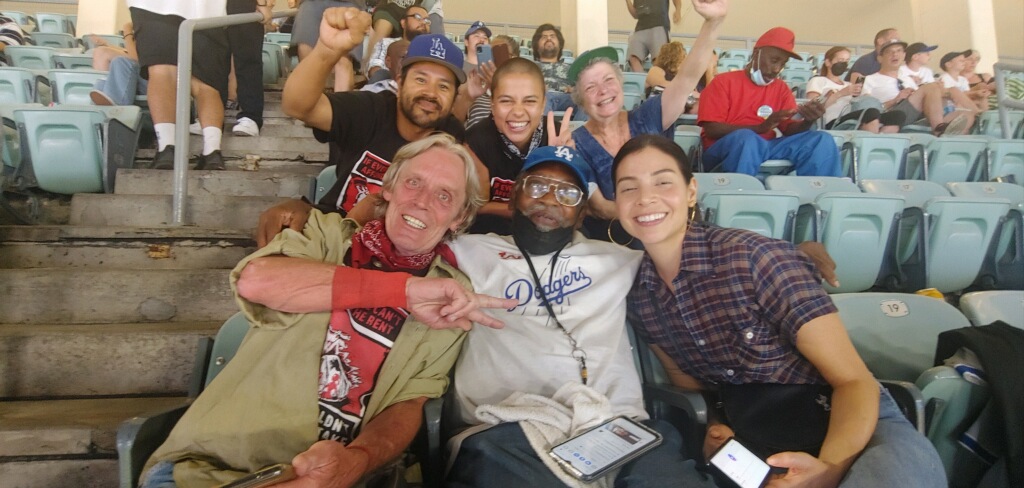
Gerardo Gomez. I met Paul when I was elected to the Board of Directors at the National Coalition for the Homeless (NCH) when I was 20 years old. I was with Paul at the board meeting when he suggested to have regional offices with NCH.
READ MORE HERE…
Lynn Lewis. I met Paul in 1991-ish when I joined the National Coalition for the Homeless Civil Rights Workgroup calls. Paul was still the Executive Director of the San Francisco Coalition on Homelessness. We were both holding down spots on the board of the National READ MORE HERE…
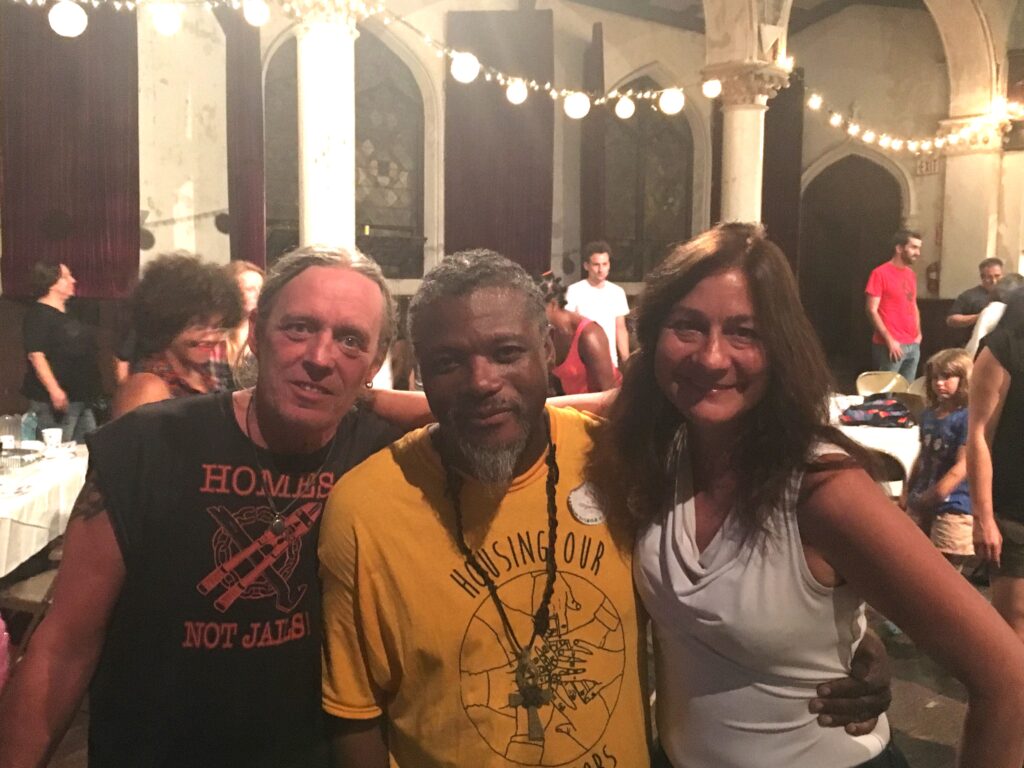
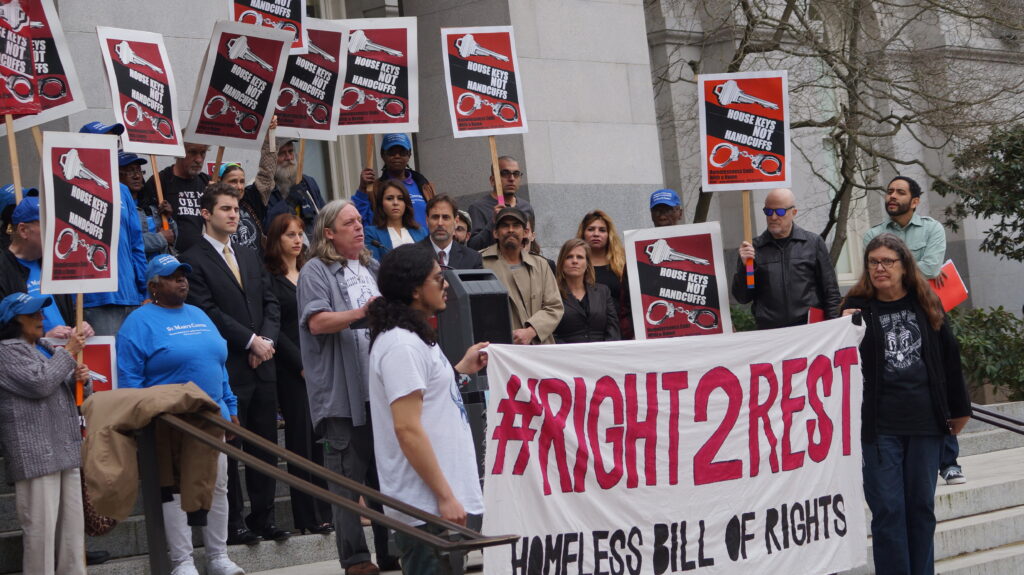
Jeffrey Selbin directs the UC Berkeley School of Law Policy Advocacy Clinic, which he founded in 2015 as an interdisciplinary clinic to train and supervise law and public policy students to take on systemic racial and economic
READ MORE HERE…
Jennifer (Jenny) Friedenbach is the Executive Director of the Coalition on Homelessness, San Francisco where she has worked for 27 years. She has achieved significant victories alongside homeless people including successfully fighting for the creation of
READ MORE HERE…
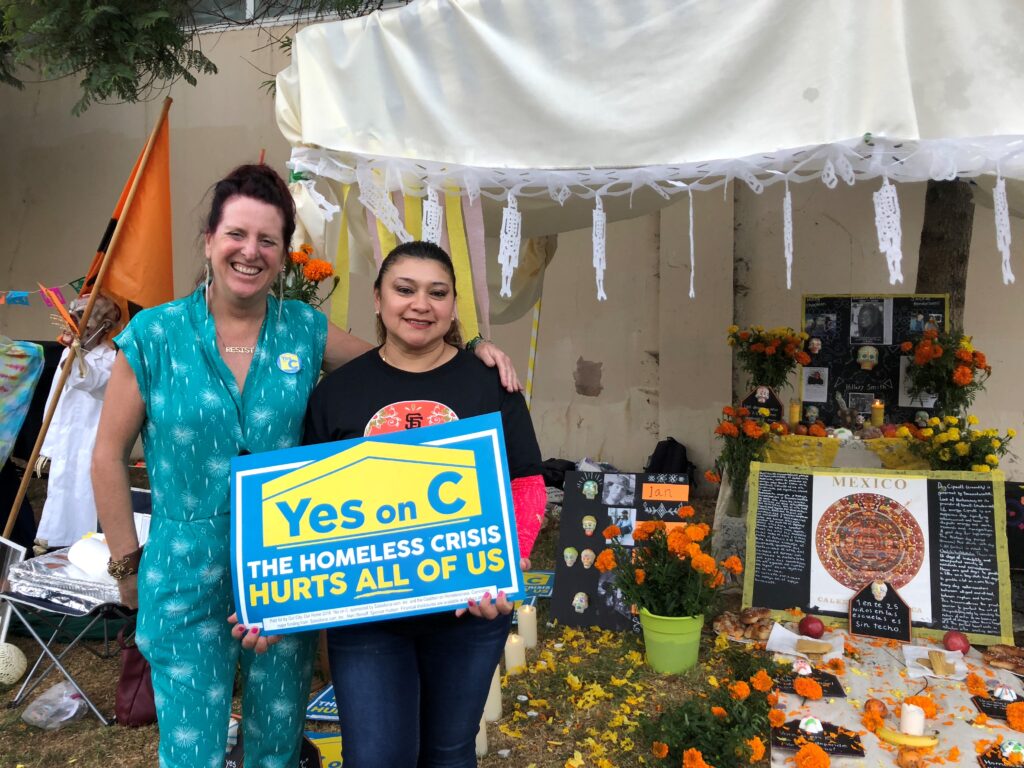
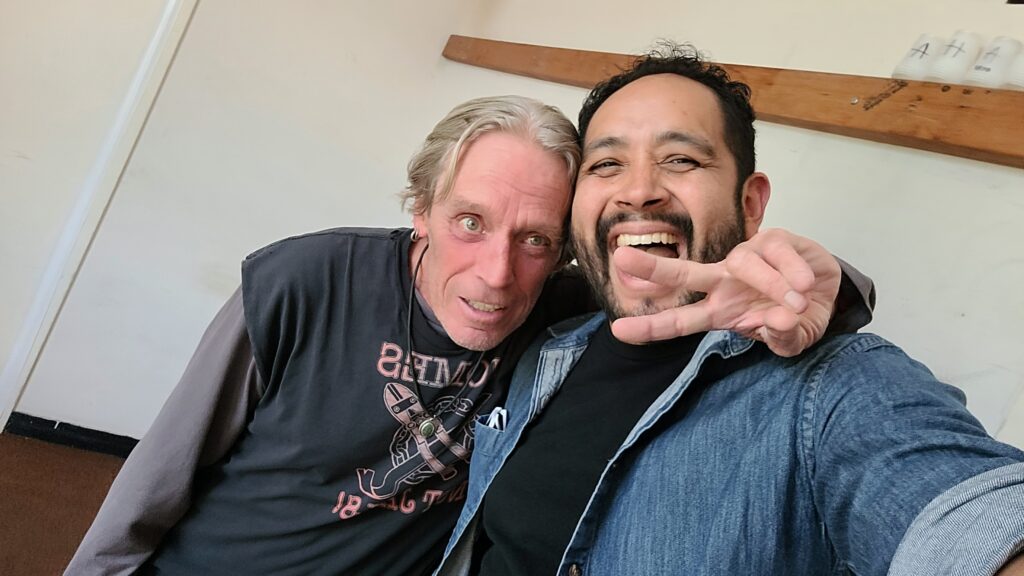
Eric Ares is the Housing and Homelessness Director for Los Angeles Council Councilmember Eunisses Hernandez. For over 15 years he has worked alongside unhoused residents, low-income tenants, organizers/advocates, and service providers in Skid
READ MORE HERE…
Tristia Bauman went to law school to fight against the systems that create poverty and inequity. She has spent her 16-year legal career working for the liberation and dignity of all people, with a focus on ending the criminalization of homelessness.
READ MORE HERE…
